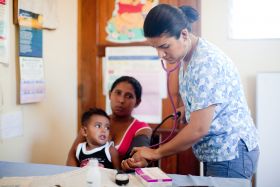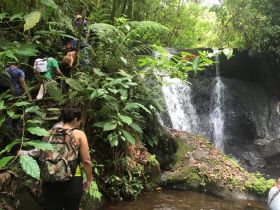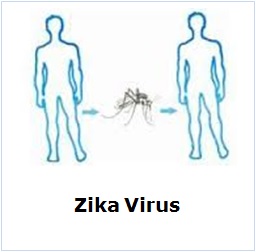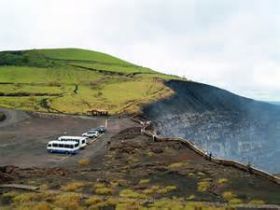In Nicaragua, do I have to worry about malaria, yellow fever and other diseases we don't generally have in North America?
Mike Cobb - ECI Development
Nicaragua has both Dengue and Malaria as mosquito-borne diseases. Both are rare in Managua, but are prevalent in eastern provinces. We do not take any anti-malarial drugs.
Nicaragua has both Dengue and Malaria as mosquito-borne diseases. Both are rare in Managua, but are prevalent in eastern provinces. We do not take any anti-malarial drugs.
Posted January 19, 2014
Terri Marlett - NICA

I got malaria while in Nicaragua. It was my own fault, really. I was not informed about how malaria was contracted, and I knew malaria was active in the area where I was. I have known several Americans who live in Nicaragua and none of them have ever had malaria. I really think it was just a fluke that I got it.
I have never heard of any locals or anyone at all having Yellow Fever.
Some tips on how not to get malaria. Do not...
I have never heard of any locals or anyone at all having Yellow Fever.
Some tips on how not to get malaria. Do not...

I got malaria while in Nicaragua. It was my own fault, really. I was not informed about how malaria was contracted, and I knew malaria was active in the area where I was. I have known several Americans who live in Nicaragua and none of them have ever had malaria. I really think it was just a fluke that I got it.
I have never heard of any locals or anyone at all having Yellow Fever.
Some tips on how not to get malaria. Do not go into rural areas during the rainy season at sunrise or sunset. If you must be in rural areas, then use bug spray with DEET. To be extra safe, go to a travel medicine doctor a few weeks before your trip and get a prescription for preventative treatment. You will have to start this medication a week before you leave. There are no vaccines for malaria.
If you get malaria, it is not the end of the world. The type of malaria in Nicaragua is the least dangerous kind. It is called Vivax malaria. I actually got malaria while pregnant with my oldest daughter in 2008. We are both alive and well. Odds are you won't have symptoms for up to a month after you leave Nicaragua. Important symptoms to watch for are flu like symptoms that come and go every 24-48 hours. Severe chills that come and go on the same schedule. Finally, headaches associated with malaria are like migraines. If you have any of these symptoms, any ER can test you for malaria and get you treatment right away. Treatment is simple and easy.
The picture is of a rural health clinic in El Transito. They have finger prick tests there for malaria. They also have medication on the shelf, ready to distribute. If you find yourself in Nicaragua with these symptoms, any local healthcenter or hospital can help you quickly and painlessly.
I have never heard of any locals or anyone at all having Yellow Fever.
Some tips on how not to get malaria. Do not go into rural areas during the rainy season at sunrise or sunset. If you must be in rural areas, then use bug spray with DEET. To be extra safe, go to a travel medicine doctor a few weeks before your trip and get a prescription for preventative treatment. You will have to start this medication a week before you leave. There are no vaccines for malaria.
If you get malaria, it is not the end of the world. The type of malaria in Nicaragua is the least dangerous kind. It is called Vivax malaria. I actually got malaria while pregnant with my oldest daughter in 2008. We are both alive and well. Odds are you won't have symptoms for up to a month after you leave Nicaragua. Important symptoms to watch for are flu like symptoms that come and go every 24-48 hours. Severe chills that come and go on the same schedule. Finally, headaches associated with malaria are like migraines. If you have any of these symptoms, any ER can test you for malaria and get you treatment right away. Treatment is simple and easy.
The picture is of a rural health clinic in El Transito. They have finger prick tests there for malaria. They also have medication on the shelf, ready to distribute. If you find yourself in Nicaragua with these symptoms, any local healthcenter or hospital can help you quickly and painlessly.
Posted April 10, 2014
Immanuel Zerger - Solentiname Tours - Discover Nicaragua
There is no real danger of yellow fever in Nicaragua. It does not exist here.
There are mosquitoes in the jungle areas and there could be malaria there as well. The Nicaraguan malaria is not like the deadly malaria disease in Africa. If you come to Nicaragua, it is not necessary to take any malaria medication.
We have many clients and none of them got ill from malaria. If in case you contract malaria while you are here in...
There is no real danger of yellow fever in Nicaragua. It does not exist here.
There are mosquitoes in the jungle areas and there could be malaria there as well. The Nicaraguan malaria is not like the deadly malaria disease in Africa. If you come to Nicaragua, it is not necessary to take any malaria medication.
We have many clients and none of them got ill from malaria. If in case you contract malaria while you are here in Nicaragua, there is already enough experience and medication here to get cured and recover from malaria within one week. The strain of malaria that we have here is the type that does not come back. So, in Nicaragua, once you are healed of malaria, it will not come back. For 20 years of living in Nicaragua, I had malaria for a week and I never had it again.
Posted January 16, 2015
Marissa Gabrielle Lolk - Jireh Dental Care
 In Nicaragua, you have to worry about malaria and dengue. It usually happens around winter because our winters are full of rain and you have to be mindful of not leaving any stagnant water because then there will be a lot of mosquitoes floating around. There are mosquitoes everywhere here during the wintertime.
In Nicaragua, you have to worry about malaria and dengue. It usually happens around winter because our winters are full of rain and you have to be mindful of not leaving any stagnant water because then there will be a lot of mosquitoes floating around. There are mosquitoes everywhere here during the wintertime. Most foreigners get malaria because something happens with the red blood cells. It is almost as if, if you are native,...
 In Nicaragua, you have to worry about malaria and dengue. It usually happens around winter because our winters are full of rain and you have to be mindful of not leaving any stagnant water because then there will be a lot of mosquitoes floating around. There are mosquitoes everywhere here during the wintertime.
In Nicaragua, you have to worry about malaria and dengue. It usually happens around winter because our winters are full of rain and you have to be mindful of not leaving any stagnant water because then there will be a lot of mosquitoes floating around. There are mosquitoes everywhere here during the wintertime. Most foreigners get malaria because something happens with the red blood cells. It is almost as if, if you are native, you have some immunity, but if you are foreign, you are most likely to get it because you don’t have the built in immunity towards these diseases. You could get a malaria shot. I had malaria and it’s not so bad. (The malaria in Central American is not the same as the Malaria in Africa.)
I came here to Nicaragua when I was very young. I was seventeen, so I just toughed it out. I had malaria, I had dengue, and I just had zika. When you get malaria in Central America, pretty much it’s just a bad flu. Your body aches for a week and that’s about it. You do need to go to the doctor, though, because they have to make a diagnosis. What they do after that is pretty simple – they give you pain relievers and lots of fluids including Pedialite so you don’t dehydrate. The virus goes in and out of you for about 8 days. It didn’t have any lasting effect on me and I never heard of anybody who had a lasting effect from having malaria.
There are, however, other diseases that would give you a lasting effect, one of which is chikungunya. Chikungunya was the virus outbreak before zika came out. Just like dengue, chikungunya is a disease that is also transmitted by mosquitoes. When you contract chikungunya, you get a really bad flu, develop a rash on your body at some point, your extremities – hands, arms, legs, feet, ankles, and wrists get really swollen, and your joints hurt incredibly. One of the ladies who works for me had it. It lasts for about 10 days, depending on your immune system. The lady who works for me does not have an amazing immune system so she got hit really hard. She had lasting joint pain and it’s been going on forever. The doctor broke it down to us in a certain way. He told us that in the first phase, people with chikungunya get really sick for about 10 days. Then on the second phase, from 10 to 30 days, you get joint pain, they don’t feel good and get fatigued. The third phase, 30 days onwards, they still feel that joint pain and they might be more inclined to have Rheumatoid arthritis. My poor employee ended up in the third phase so she had a lot of joint pain and discomfort, and she gets tired, so we had to let her have breaks during the day. Sometimes it flares up and sometimes she is fine.
Another disease that is common in Central America is dengue. It is just another flu and is also transmitted by mosquitoes. Mosquitoes lay eggs in stagnant water so you always have to be mindful when it is rainy season to make sure that you have no potted plants that have water lingering in them and you have to make sure that there’s not water lingering in your laundry area. Most of the houses here in Nicaragua have laundry areas outside. They have little areas that have built-in washboards and there is an area where you can recollect water. You have to make sure that those are clean and dry if you don’t want to get sick. You can actually work around it. If you’re good about it, such as if you always use an insect repellant and make sure that you don’t leave any water sitting around, you won’t get sick. But when you do get dengue, it’s not the end of the world. It is just another bad flu and that’s it. Dengue is very similar to malaria except that you do get a rash as well and you get really high fevers. You don’t get swollen joints but you get body aches, which is why people call it the “bone breaker,” because it feels like your bones are cracking as you are in pain.
The thing that you want to be most careful about is to not get dengue if you already had malaria because you would be prone to get the hemorrhaging dengue, which is a more complicated strain of dengue. If you get this type of dengue, you could be in the hospital for a month. The nice thing about the hospitals here, especially the ones in the capital, Managua, is that they absolutely know what to do in order to tackle these diseases. I know people who had hemorrhaging dengue and they recovered fine.
Hikers along a waterfall and stream in Nicaragua, pictured.)
Posted April 5, 2016
Joseph Bowersmith
 Nicaragua does have a few diseases that you need to be wary of such as Dengue, Zika, Chikungunya, Chaga's disease and Hepatitis A. You can get a vaccine against Hep A to protect yourself. But you should educate yourself about Dengue, Zika, Chikungunya and Chaga's disease. Since they are carried by insects here, you can learn what you can do to limit your risk. Malaria is more prevalent on the Atlantic side of the country.
Nicaragua does have a few diseases that you need to be wary of such as Dengue, Zika, Chikungunya, Chaga's disease and Hepatitis A. You can get a vaccine against Hep A to protect yourself. But you should educate yourself about Dengue, Zika, Chikungunya and Chaga's disease. Since they are carried by insects here, you can learn what you can do to limit your risk. Malaria is more prevalent on the Atlantic side of the country. (Zika virus...
 Nicaragua does have a few diseases that you need to be wary of such as Dengue, Zika, Chikungunya, Chaga's disease and Hepatitis A. You can get a vaccine against Hep A to protect yourself. But you should educate yourself about Dengue, Zika, Chikungunya and Chaga's disease. Since they are carried by insects here, you can learn what you can do to limit your risk. Malaria is more prevalent on the Atlantic side of the country.
Nicaragua does have a few diseases that you need to be wary of such as Dengue, Zika, Chikungunya, Chaga's disease and Hepatitis A. You can get a vaccine against Hep A to protect yourself. But you should educate yourself about Dengue, Zika, Chikungunya and Chaga's disease. Since they are carried by insects here, you can learn what you can do to limit your risk. Malaria is more prevalent on the Atlantic side of the country. (Zika virus can spread sexually, person to person, pictured.)
Posted April 12, 2016
Dr. Carlos Alemán - Centro de Diseño Denta (Clínica Dental)
 Recently, many people are scared of the Zika virus, which is a virus that is carried by mosquitoes. You might have to be careful of that by using some insect repellents or something to protect you from getting bitten by mosquitoes.
Recently, many people are scared of the Zika virus, which is a virus that is carried by mosquitoes. You might have to be careful of that by using some insect repellents or something to protect you from getting bitten by mosquitoes. It seems that recently, there are a lot of infections that are being transmitted by mosquitoes all over Latin America, and Nicaragua is not an exception. It also depends on where you are going. If you are going outside of the...
 Recently, many people are scared of the Zika virus, which is a virus that is carried by mosquitoes. You might have to be careful of that by using some insect repellents or something to protect you from getting bitten by mosquitoes.
Recently, many people are scared of the Zika virus, which is a virus that is carried by mosquitoes. You might have to be careful of that by using some insect repellents or something to protect you from getting bitten by mosquitoes. It seems that recently, there are a lot of infections that are being transmitted by mosquitoes all over Latin America, and Nicaragua is not an exception. It also depends on where you are going. If you are going outside of the city or to a mountain or a volcano, you might have to use some protection from mosquito bites, but if you are in the city, it is not a big deal at all. We don’t worry about it. Malaria and Yellow Fever is from the past. It is not common any more, even here in Nicaragua.
(Volcán Masaya, Nicaragua, pictured.)
Posted September 23, 2016


